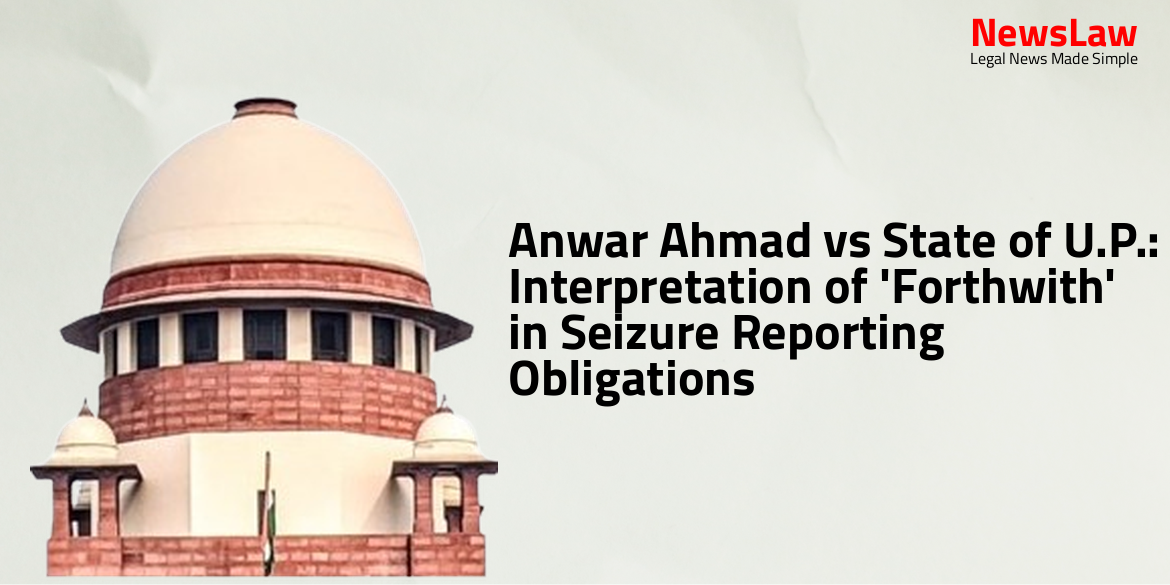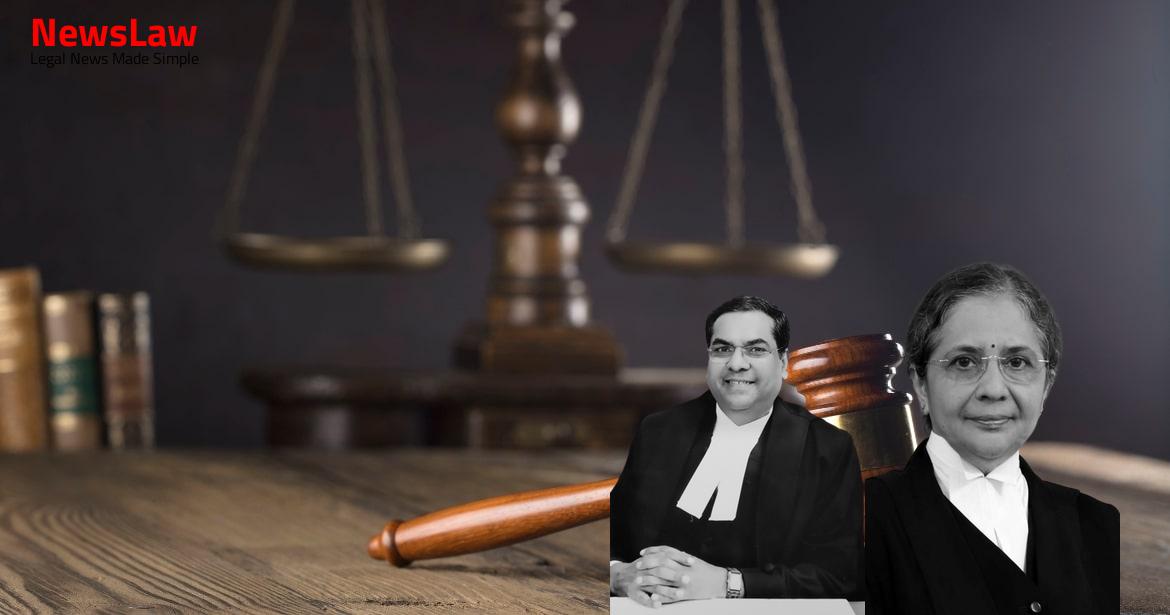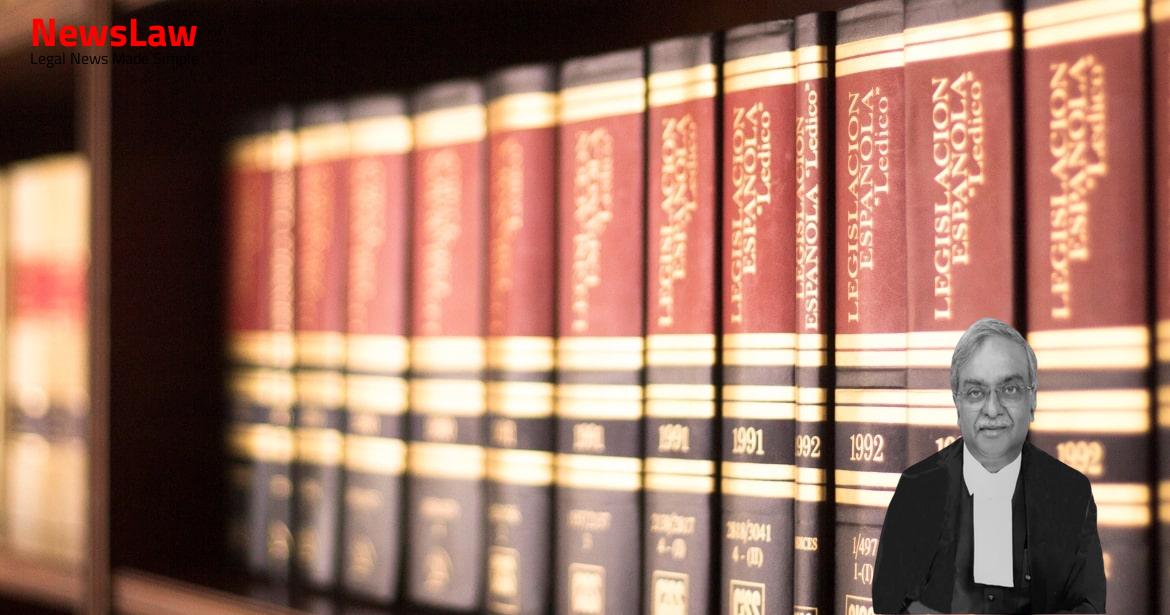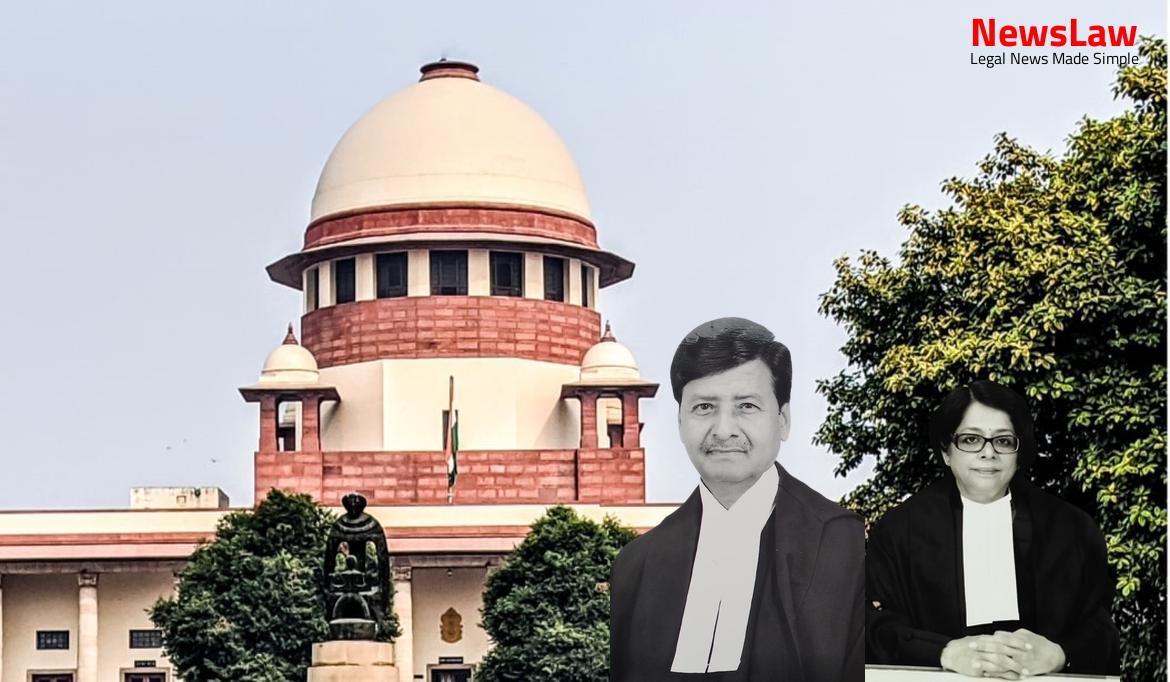The Supreme Court’s pivotal judgement in the case of Anwar Ahmad vs State of U.P. brings to light the interpretation of ‘forthwith’ in seizure reporting obligations. This analysis explores the implications of delayed reporting in the legal context, setting a precedent for future cases involving seizure orders.
Facts
- The first informant has preferred these appeals in relation to Crime No. 318 of 2022.
- The appeals have been filed to challenge the order of the lower court, which rejected the application seeking direction to register an FIR against the accused.
- The first informant is seeking an investigation by the police in the matter.
- The appeals are filed to seek justice and further legal action against the accused.
- The High Court ordered the de-freezing of bank accounts belonging to the accused individuals.
- The decision was based on the delay by the police in reporting the seizure of assets to the Magistrate.
- The order was passed on 09.08.2023 in response to Crl. O.P. Nos. 14029 & 14031 of 2023 and Crl. M.P. Nos. 8658 of 2023.
- The High Court of Madras upheld the claim of the accused for de-freezing their bank accounts.
Also Read: Legal Analysis: Priyanka Jaiswal vs. State of Jharkhand – Quashing of Proceedings
Issue
- Key issue to be determined is the implication of not promptly reporting a seizure to the jurisdictional Magistrate as per Section 102(3) Cr.P.C.
- Implication of non-reporting of seizure must be examined in the context of the facts of the instant case.
- The specific question of law arising from the facts is crucial to understanding the consequences of failure to report seizure forthwith.
- Understanding the statutory requirement of reporting seizures under Section 102(3) Cr.P.C. is essential to determine the legal implications in this case.
Analysis
- The analysis delves into the interpretation of the expression ‘shall forthwith report the seizure to the Magistrate’ in Section 102(3) Cr.P.C.
- It examines two prevailing viewpoints on delayed reporting: one suggesting it vitiates the seizure order due to mandatory reporting requirement, the other deeming it a mere irregularity with no express consequences.
- The former view emphasizes the mandatory nature of reporting to the Magistrate and breach of this requirement as an illegality affecting the root of the matter.
- In contrast, the latter view sees the reporting obligation as directory, considering seizure power as plenary and reporting as merely incidental.
- The analysis highlights that proof of prejudice and explanation for delay can be addressed during trial, making non-compliance an issue for later adjudication.
- It discusses the lack of authoritative judicial construction on the word ‘forthwith’ and absence of statutorily provided consequences for non-compliance.
- The analysis asserts that delayed reporting does not vitiate seizure orders, and consequences for police officers for failure to act as mandated by law remains a separate matter.
- It underscores the necessity to understand and interpret ‘forthwith’ in the context of the obligation imposed on officers when seizing property in criminal proceedings.
- Section 105E(1) confers the power to make seizures under specified circumstances.
- Section 105E(2) requires confirmation of the seizure order by the court within thirty days.
- Police officers seizing property must report it to the officer in charge of the police station and the Magistrate.
- Property seized may be given to a custodian if transportation or custody is difficult, with the requirement of producing it before the court.
- Property subject to decay and valued below five hundred rupees may be sold by auction under the Superintendent of Police’s orders.
- The duty to report seizures to the Magistrate is essential for proper custody and disposal of seized property.
- There was a historical lacuna in the law regarding the duty to report seizures to the Magistrate, which led to necessary amendments.
- Section 102 of the Cr.P.C. was amended to address a lacuna in the law.
- The amendment required the police officer to report the seizure of property to the Magistrate promptly.
- The amendment was influenced by the Supreme Court’s observations in the case of Anwar Ahmad vs the State of U.P. (AIR 1976 SC 680).
- The amendment allowed the police to take a bond from the person to whom seized property is entrusted, particularly in cases involving bulky property and distant Magistrates.
- The term ‘forthwith’ in legal context means ‘immediately’, ‘without delay’, ‘promptly’, ‘with a sense of urgency’, and ‘without unnecessary delay’.
- Various legal cases have interpreted the term ‘forthwith’ to mean ‘immediately’ but allowing a reasonable time under the circumstances.
- The Black’s Law Dictionary and Wharton’s Law Lexicon provide definitions of ‘forthwith’ as ‘immediately’, ‘without delay’, ‘promptly’, and within a reasonable time under the circumstances.
- The High Court allowed the accused’s application to de-freeze bank accounts, setting aside the seizure order due to delayed reporting to the Magistrate.
- The reasoning of the High Court was deemed unacceptable in light of previous discussion.
- Directing re-freezing of the bank accounts was not deemed necessary at this point, as the accounts had already been defrozen by the impugned order.
- The defreezing allowed the accused to operate the accounts and withdraw the frozen amount of Rs.19,83,036.
Also Read: Supreme Court Judgement: Case between Appellant and Respondent on Non-furnishing of Crucial Document
Decision
- The Respondents approached the High Court seeking de-freezing of bank accounts after the freezing order was reported to the Magistrate.
- The Court proposes that the Respondents execute a bond undertaking to deposit the withdrawn amount from seized accounts in case of a guilty finding.
- This proposal aims to meet the ends of justice and serve the interests of prosecution.
- The bond undertaking for depositing the amount is to be completed within four weeks from the conviction order date.
Case Title: SHENTO VARGHESE Vs. JULFIKAR HUSEN (2024 INSC 407)
Case Number: Crl.A. No.-002531-002532 – 2024



